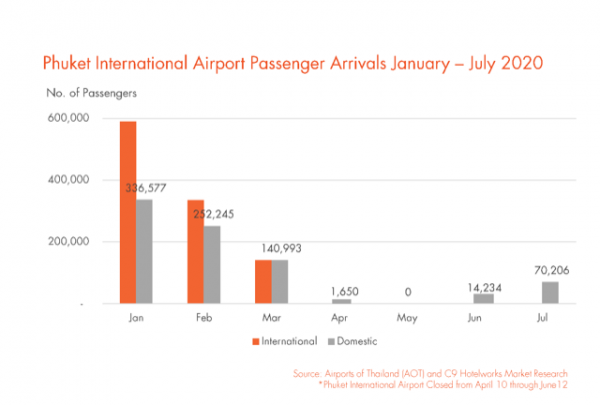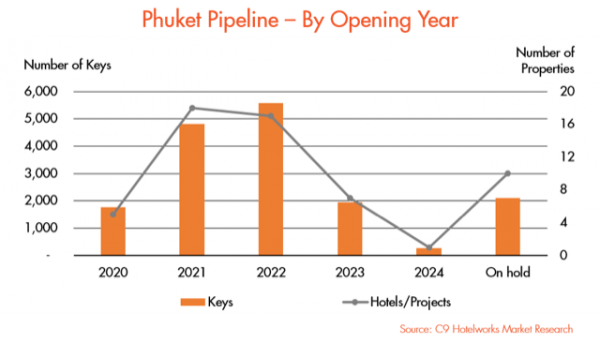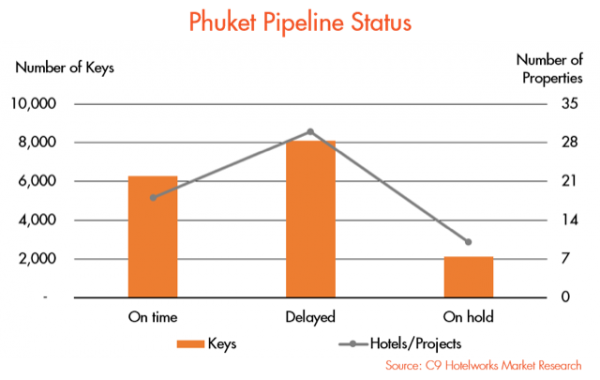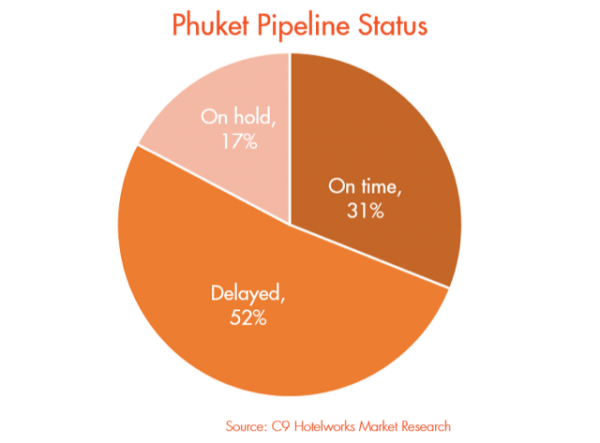PHUKET, 9 September 2020: Phuket’s hospitality and tourism industry faces meltdown, and its leaders say only economic support from the government will ensure it survives through the next six months.
As efforts to kick-start a controversial “Phuket Model” to revive international travel to the island stalled, hoteliers in Phuket said they were unable to sustain breakeven operations solely on domestic tourism.
According to the Airports of Thailand (AOT), passenger arrivals at the aviation gateway have plunged 65% year-on-year from January through July of this year.
Boasting 86,000 rooms registered accommodation, Phuket’s property owners lack cash-flow to survive the winter season months, October to March, if they have to rely solely on domestic travel.
Hoteliers estimate the island will suffer 50,000 job losses in the hospitality alone by the end of the year. Many properties will close, travel agencies will shut down, and up to a thousand tour guides will be out of work.
The only consolation for the island’s hotels comes from the Alternative Local State Quarantine (ALSQ) programme as hotels hope to stay open by offering 14-day quarantine packages that cost between THB50,000 to 200,000 depending on the hotel’s star rating. About 60 properties are applying for accreditation in the government managed scheme. But there are no direct international flights to Phuket from overseas unless the Phuket Model revives. Even if it does, most travel industry executives with a modicum of common sense recognise tourists are not going to visit a country where they must quarantine for 14-days.
With tourism being the lead economic indicator in Phuket data newly released by hospitality consulting group C9 Hotelworks reveals the Covid-19 impact on the hotel development pipeline with 69% of hotels now being delayed or put on hold. There were 1,758 licensed accommodation establishments on the island, and today incoming projects stand at 58 hotels, representing a 19% rise in supply with 16,476 additional rooms planned.
C9 Hotelworks managing director Bill Barnett said: “Thailand’s failure to relaunch overseas tourism creates a dangerously perilous scenario for Phuket’s hospitality industry. The domino financial impact is not only on hotels and the expanded tourism sector, but it suffocates the development pipeline. This will negatively trigger the erosion of jobs in construction, real estate, retail and ultimately be manifested in consumer credit defaults. The situation is bad, and likely to get worse, as operating hotels continue to incur losses day in and day out.”
In terms of updating the Phuket hotel situation on the ground, there continues to be much controversy and a lack of national and local consensus over the proposed “Safe and Sealed’ sandbox long-stay program. While a stark warning was issued last week by the Bank of Thailand (BoT) over the potential disruption to the heavily tourism-dependent country, the fate of Phuket’s coming high season remains very challenged, he said.
Citing a way forward C9’s Bill Barnett commented: “Any reopening plan must not only be well planned but has to win the hearts and minds of the Thai people to see any chance of success. While the island may hold the keys to the Kingdom in leading a restoration of tourism, but the more critical issue is how hotels can fight for their lives in the current state of limbo.”
Speaking about Phuket’s current situation Phuket Hotels Association president Anthony Lark added: “Firstly, greater proactive dialogue between the public and private sector has to be undertaken. We can’t simply say we are now in unknown territory forever. Steps must be taken, and a single voice formed.
“Secondly, the Bank of Thailand (BoT) has to look at interim measures to assist hotels with short-term operating bridge loans to weather the storm and retain jobs.”











